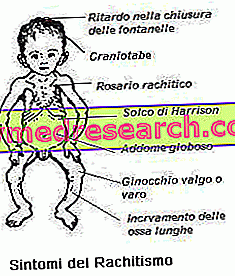ARTROSILENE © is a drug based on ketoprofen lysine salt
THERAPEUTIC GROUP: Non-steroidal anti-inflammatory and antirheumatic drugs
IndicationsAction mechanismStudies and clinical effectiveness Usage and dosage instructionsWarnings Pregnancy and lactationInteractionsContraindicationsUndesirable effects
Indications ARTROSILENE ® Ketoprofen
ARTROSILENE ® is used in the symptomatic treatment of pain associated with inflammatory states of the musculoskeletal system such as osteoarthritis, ankylosing spondylitis, rheumatoid arthritis, gouty arthritis, sciatica, synovitis, extra-articular rheumatism and post-traumatic inflammation.
Mechanism of action ARTROSILENE ® Ketoprofen
Ketoprofen, the active ingredient of ARTROSILENE ®, is a drug with an anti-inflammatory, antipyretic and analgesic action derived from arylproprionic acid and used above all in the treatment of osteo-articular and musculoskeletal inflammatory states, although it has also proved effective in dental practice and treatment. of systemic inflammatory diseases.
Its therapeutic efficacy is due to the different mechanisms of action and mainly to the inhibitory action against cyclooxygenases, enzymes able to increase the expression of prostaglandins involved in the genesis and maintenance of the inflammatory process and therefore important in the pathogenesis of diseases rheumatic and phlogistic states.
Different studies have also observed the ability of ketoprofen to carry out other important biological activities, able to crown its anti-inflammatory activity, such as:
- The central analgesic action, guaranteed by the possibility of permeating the hematoencephalic membrane, carrying out an analgesic action, through the modulation of the hormonal balance;
- The stabilizing action against lysosomal membranes, useful in reducing the outward flow of enzymes with proteolytic activity;
- The "antioxidant" action, useful in reducing the production of reactive oxygen species, involved in the onset of tissue damage.
All the above biological actions are facilitated by the excellent pharmacokinetic properties, which allow, even after oral administration, the maintenance of a high bioavailability of approximately 90% of the total dose taken.
Studies carried out and clinical efficacy
1. THE KETOPROPHENES IN THE TREATMENT OF ONCOLOGICAL PAIN
Clin J Pain. 2010 May; 26 (4): 267-74.
Recent study that seeks to expand the therapeutic indications of ketoprofen also to the treatment of cancer pain. In this work, in fact, the subcutaneous administration of ketoprofen and morphine proved to be effective in reducing pain in 80% of cancer patients treated.
2. THE KETOPROPHENES IN CLINICAL PRACTICE
Rheumatism. 2010 Jul-Sep; 62 (3): 172-88.
Very interesting review that emphasizes the great efficacy of ketoprofen in the treatment of inflammatory pain associated with rheumatic, traumatic and post-operative pathologies, therefore representing a valid therapeutic ally, also in light of the low toxicity of the product.
3. KETOPROPHENES AND NON-ALCOHOLIC HEPATIC STEATOSIS
Ann Pharmacother. 2011 Mar; 45 (3): 423. Epub 2011 Mar 1.
Case report very important that associates to the chronic administration of ketoprofen the appearance of a non-alcoholic hepatic steatosis. The study demonstrates the potential hepatotoxicity of non-steroidal anti-inflammatory drugs, especially in some categories of patients at risk.
Method of use and dosage
ARTROSILENE ®
320 mg prolonged release hard capsules of ketoprofen lysine salt;
Gel for cutaneous use with 5% ketoprofen lysine salt;
Foam for cutaneous use with 15% ketoprofen lysine salt;
Suppositories for rectal use of 160 mg of ketoprofen lysine salt;
Vials for intramuscular use from 160 mg of ketoprofen lysine salt per 2 ml of solution.
The daily intake of 160 - 320 mg of ketoprofen appears to be effective in reducing the symptomatology in most of the inflammatory states present.
However, the dosing schedule varies according to the pharmaceutical format used, in any case remember to keep the therapy for limited periods of time and always under the supervision of your doctor.
Injection parenteral ARTROSILENE ® is indicated exclusively for the treatment of acute pain states for a maximum of two / three days, after which it should be continued with an oral therapy.
The doses used may undergo significant changes in elderly patients or those suffering from liver and kidney diseases.
Warnings ARTROSILENE ® Ketoprofen
The intake of ARTROSILENE ® should be preceded by a careful medical examination to assess the possible presence of conditions incompatible with ketoprofen-based therapy.
It is also necessary to consider the possibility of using this drug in the various pharmaceutical formats provided, in order to minimize the appearance of side effects in predisposed subjects.
In this regard, the use of the lowest possible doses could significantly reduce the incidence of the various side effects described below.
Particular caution is recommended in patients suffering from gastro-intestinal, hepatic, renal, cardiovascular and coagulative diseases, for which periodic monitoring of the functionality of the aforementioned organs is necessary in order to reduce the incidence of new adverse reactions or the aggravation of pre-existing diseases.
The use of ARTROSILENE ® for topical and intramuscular use could be accompanied by the appearance of dermatological manifestations of an allergic nature, including photosensitivity; it is therefore recommended to avoid direct exposure to sunlight from the treated area.
At the appearance of the first side effects the patient should immediately contact the doctor, and eventually decide for the suspension of the pharmacological treatment.
PREGNANCY AND BREASTFEEDING
The intake of ARTROSILENE ® during pregnancy is not recommended due to the potential toxic effects on the fetus and those borne by the mother.
More precisely, the reduced presence of prostaglandins could compromise the normal process of cell differentiation and proliferation, facilitating the onset of fetal malformations and unwanted abortions and at the same time increasing the risk of bleeding in the mother at the time of delivery.
Interactions
The pharmacological characteristics of ketoprofen, as well as those more generally of non-steroidal anti-inflammatory drugs, significantly increase the possibility of relevant drug interactions, capable of altering both the therapeutic properties and the safety of the drug used.
More precisely, pharmacokinetic studies demonstrate how the contextual intake of
- Oral anticoagulants and inhibitors of serotonin reuptake, could increase the risk of bleeding;
- Diuretics, ACE inhibitors, angiotensin II antagonists, methotrexate and cyclosporine could exacerbate side effects, especially those at the kidney level;
- Non-steroidal anti-inflammatory drugs and corticosteroids could intensify the damaging action of the gastric mucosa;
- Antibiotics could alter the therapeutic efficacy of both active ingredients;
- Sulfonylureas, could determine an altered glycemic control, exerted by the hypoglycemic effect of ketoprofen.
In this case topical administration of ketoprofen could reduce the aforementioned drug interactions both in intensity and in severity.
Contraindications ARTROSILENE ® Ketoprofen
The intake of ARTROSILENE ® is contraindicated in patients who are hypersensitive to the active ingredient or to one of its excipients, hypersensitive to acetylsalicylic acid and other analgesics, suffering from hepatic, renal and cardiac insufficiency, bleeding diathesis, intestinal bleeding, ulcerative colitis, Crohn's or past history for the same conditions.
Undesirable effects - Side effects
Also the intake of ketoprofen, as well as that of other non-steroidal anti-inflammatory drugs, is accompanied by the presence of numerous side effects, distributed among the various organs and systems.
The incidence and severity of these reactions increases in proportion to the duration and intensity of anti-inflammatory therapy.
Among the most interested organs and apparatuses we find:
- The gastro-intestinal system with dyspepsia, nausea, vomiting, diarrhea, constipation, gastralgia and in severe cases perforation ulcers and bleeding;
- The nervous system with vertigo, headache, drowsiness and depression;
- The skin, susceptible to hypersensitivity reactions, especially following topical and intramuscular administration of ketoprofen, manifested in the form of hives, skin rash, bullous reactions and photosensitivity;
- The kidney and the liver, subjected to fatigue and sometimes to necrosis;
- The cardiovascular system, whose function could be seriously compromised following the chronic intake of ketoprofen.
It is useful to remember that the use of topical solutions can significantly reduce the incidence of some side effects, such as those affecting the gastro-intestinal tract.
Note
ARTROSILENE © is salable only upon medical prescription.



